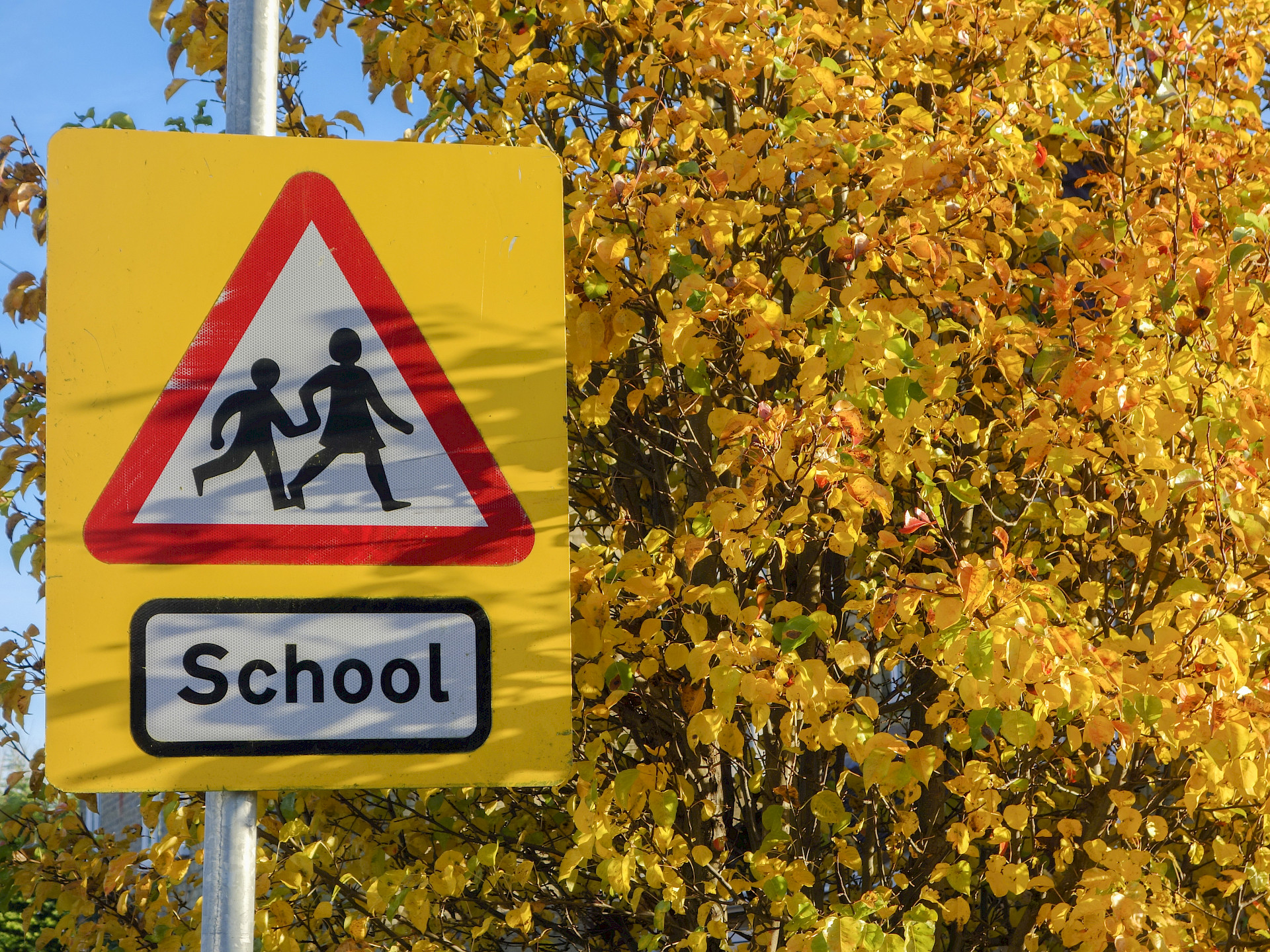
Over the last decade or so, we’ve seen the playing fields that your children play on, and the buildings they learn in, handed over to unaccountable academies. Academies are replacing the public education system as we know it – and we’re losing control of our children’s future. And whilst we are told this improves standards, the evidence just doesn’t prove it.
Key facts
-
The number of schools in academy control has nearly doubled in the last 5 years. There are currently 10,640 academies in England.
-
UCL found that there is no positive educational impact for children attending multi academy chains, and pupils in larger academy chains do worse.
-
Academies have been found to be more likely to employ underqualified teachers, especially if they’re in a poorer area.
-
Academies are more likely to permanently exclude pupils rather than support them. The amount of permanent exclusions, meant to be a ‘last resort’, increased by 71% in the UK between 2013 and 2020. Excluded children are 4 times more likely to be jailed as adults, and are disproportionately SEN and Black pupils.
-
Two thirds of academy chief executives are paid more than £100,000 of taxpayers’ money, adding an additional £106 million to the costs of running the schools. The highest earning CEO takes home almost £500k, while 37 Academy Trusts are under scrutiny for their high wages. Meanwhile, teachers earn £1,300 less per year in academy schools.
The history
Blair’s Labour government introduced academies in the 2000s, spearheaded by Andrew Adonis. In 2010, the Conservative-Liberal Democrat coalition government passed a law which allowed existing schools to be converted into academies, and in 2016 the government was granted the power to force schools to become academies. By 2017, multi-academy trusts (operating more than one academy) had become dominant, and now there are 1,170 Multi Academy Trusts operating schools across England. As of January 2022, 80% of secondary schools are academies or free schools, and 39% of primary schools.
Schools in Scotland, Wales and Northern Ireland remain in local authority control: the academy model only exists in England.
"Academisation has increased inequality and undermined accountability and fairness in the system. It has meant that communities and staff are increasingly locked out of the system with little say on the future of their schools. And there is no evidence that it has improved school standards or led to better outcomes for children. Indeed, the evidence suggests the opposite." Mary Boulter - NEU Joint General Secretary
Who owns academy schools?
Academies receive funding from the government, but operate without the oversight of their local authority.
They are run by academy trusts which are not-for-profit companies. These trusts might run one school but more commonly oversee a chain of schools as a Multi Academy Trust (MAT). They can have a private ‘sponsor’- this could be a business or an individual (often hedge fund managers or businessmen) - who has the power to exert control over how the school is run: appointing the headteacher and governing body for the school.
Academies have the freedom to set their own admissions procedures, write their own curriculum, recruit teachers how they want (often with less training or worse pay and conditions), and decide how to use the money they receive from central government for teaching our children.
They don’t have to have elected parent governors – or any governing body at all. And because they’re out of the control of local authorities, the people you vote for have no oversight either.
If you were worried about something at your child’s school wouldn’t it be better if it was run locally, with oversight from democratically elected councillors and governors? Wouldn’t it be better if teachers ran your school, not a distant academy chain?
“The extraction of schools from local authority control seems to have created a series of fiefdoms whose self-made princes are almost totally unaccountable.” The Secret Teacher
Why education should be public
We need an education system that works for everyone. This means a democratically accountable and transparent education system, where no child is left behind.
Education is not a business, and no one has the right to cash in on our children's learning. Academy bosses currently pay themselves huge salaries, all while paying teachers less and cutting corners for pupils. According to the Public Accounts Committee, a serious lack of transparency is resulting in parents being unable to hold schools or the government to account while a two-tier schooling system has been created - ‘orphaning’ smaller schools, and pumping huge academy chains with tens of millions in public money. Our education system should be fair, providing opportunities and support to all pupils, and prioritising their learning and wellbeing over fat cat pay packets.
Local authorities can also provide more stability for our schools. They can coordinate with schools across a large area, linking up services and providing financial support where needed and sharing costs between schools. The majority of academies are operating with a deficit, meaning they’re pushed to join bigger academy chains. They have to outsource backroom services which the council was previously able to provide efficiently, duplicating and driving up costs. Instead of schools being passed between different trusts to stay afloat, in public hands they can operate more efficiently and provide more continuity for pupils.
Our schools are facing a funding crisis, and academies are only making things worse. We need to focus on teacher training, supporting support staff, and funding our schools properly. We need a public education system.
FAQs
What is the difference between a state school and an academy?
‘Maintained’ schools are the state schools most of us will have attended - funded by the state and overseen by our local government. Academy schools are still funded by the taxpayer, but are governed by private companies or individuals. They have the freedom to pay big bonuses to senior staff, and pay headteachers up to £30,000 more than in other schools, while employing lower paid and underqualified teachers.
Why were academies set up? Are academies better than maintained schools?
Academies were originally dreamt up to ‘drive up standards’. They gave schools the ability to pay millions of public money to school leaders, while teachers’ pay has remained frozen. There is no evidence that they improve learning outcomes for pupils.
How does a school become an academy?
A school can become an academy in several different ways:
- A new academy school can be set up by an academy trust through the Department for Education
- A maintained school can choose to convert to an academy, appointing ‘school business managers’ or joining an academy trust chain
- If a school funded by the local authority is judged as ‘inadequate’ by Ofsted then it is forced to become an academy.
An increasing number of schools are being forced to convert to academy status, with teachers, parents and the school leadership losing a say in the process.
What does it mean when a school becomes an academy?
Teachers and parents will have less say in how the school operates, resources for pupils are likely to be cut, workload will increase for stressed staff, unqualified teachers are more likely to be hired, and excessively strict, punitive behaviour policies may be enforced.
Why make every school an academy?
The Government wants to see every school in England in a multi-academy trust (MAT) or in the process of joining one by 2030. This is because academisation is essentially privatisation by another name, undermining local democracy, teachers’ unions, and creating a two-tier system. It is an ideological choice, putting pupils last.
Are academy schools run for profit?
Academies are not-for-profit, but they allow private companies to syphon public money out of the education system for individual gain. Cases of corruption, outsourcing school services, and huge payouts to senior leadership show how academies are making our schools cash-cows for private businesses.
What can I do about my school becoming an academy?
Communities are fighting back across England against the academisation of our local schools. For example, in Holland Park, 200 pupils protested against forced academisation of their school. Teachers at Newham’s St Michael’s Primary School managed to save their school following strike action. In Yorkshire, education unions joined forces, took action and stopped 19 schools being forced to become academies, forcing the government to u-turn.
Take action against academisation with the National Education Union
Related news
-
29 Mar 2024 Source: www.telegraph.co.uk
-
Schools crippled by soaring PFI bills
- PFI
- Media Mention
- Schools
12 Feb 2024 Source: morningstaronline.co.uk -
-
Council-maintained schools in England outperforming academies in Ofsted ratings
- Schools
3 Aug 2023 Source: www.theguardian.com -
‘Pupils are distressed’: community fights top London school’s takeover
- Schools
21 Sep 2022 Source: www.theguardian.com


